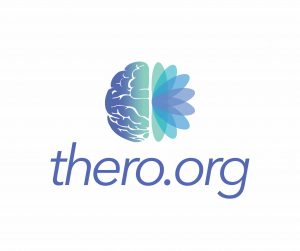Get Involved

 Become a Thought Partner
Become a Thought Partner
Partner with us to produce thought leadership that moves the needle on behavioral healthcare.
 Other options to get involved
Other options to get involved

Thank you!
We received your information and will be in contact soon!
Get Involved

 Grantmaking
Grantmaking
We fund organizations and projects which disrupt our current behavioral health space and create impact at the individual, organizational, and societal levels.
 Participatory Funds
Participatory Funds
Our participatory funds alter traditional grantmaking by shifting power
to impacted communities to direct resources and make funding decisions.
 Special Grant Programs
Special Grant Programs
We build public and private partnerships to administer grant dollars toward targeted programs.
 Program Related Investments
Program Related Investments
We provide funds at below-market interest rates that can be particularly useful to start, grow, or sustain a program, or when results cannot be achieved with grant dollars alone.
Get Involved

 Tia Burroughs Clayton, MSS
Tia Burroughs Clayton, MSS
Learning and Community Impact Consultant
Add some text here
 Alyson Ferguson, MPH
Alyson Ferguson, MPH
Chief Operating Officer
Contact Alyson about grantmaking, program related investments, and the paper series.
 Samantha Matlin, PhD
Samantha Matlin, PhD
Senior Learning & Community Impact Consultant
Contact Samantha about program planning and evaluation consulting services.
 Caitlin O'Brien, MPH
Caitlin O'Brien, MPH
Director of Learning & Community Impact
Contact Caitlin about the Community Fund for Immigrant Wellness, the Annual Innovation Award, and trauma-informed programming.
 Joe Pyle, MA
Joe Pyle, MA
President
Contact Joe about partnership opportunities, thought leadership, and the Foundation’s property.
 Bridget Talone, MFA
Bridget Talone, MFA
Grants Manager for Learning and Community Impact
Add some text here
Thero

Program Website
Year:
2017State:
CaliforniaWinner Status:
ApplicantProgram Type:
Access to CareTarget Population:
Providers and CaregiversSetting:
Online Community/ToolProgram Description
Our non-profit has built a free online Referral Network where licensed mental health providers can send and receive client referrals, promote a therapy group or mental health event, find a job, post a job opening, and even find office space. The best way to easily visualize the project is to imagine Psychology Today combined with a LinkedIn that has been specifically designed for therapists. Our three primary goals for the Referral Network are to: 1) Make it easy to send and receive patient referrals. 2) Foster collaboration between treatment providers. 3) Integrate the mental health field. The Referral Network is free (and always will be).
Creativity
We are focused on innovation, iteration and sustainability. There are many other organizations that have done pieces of what we’ve built, but we are dedicated to being a comprehensive solution. The Referral Network brings together various pieces of technology into one package and the result is the first platform that allows therapists to search for available referrals that are specific to their specialty. The diversity of our staff gives us unique perspective and insight into problems in the mental health field. We have been able to achieve our progress so far with a minimal budget and have utilized volunteer support and crowd-sourced infrastructure. For example, we use crowd-sourcing to correct outdated or erroneous information on our database and strongly encourage feedback on our design from our community of treatment providers.
Leadership
Our goal is to make it easy to find mental health services. We plan to achieve this by being “thoughtfully disruptive” in the mental health field, and more specifically in the help-seeking process. We see our job as creating more competition in the space, which we believe will force out-dated models or designs to improve.
Sustainability
The Referral Network is free for licensed mental health treatment providers- and it always will be. The Referral Network needs to be free because it runs on a cooperative model, meaning the more providers in the system, the more benefit it adds to each provider. Treatment Providers can upgrade their account to be listed in our publicly searched Resource Directory. Providers will pay a monthly fee. This will provide funds to keep improving the resources on Thero.org, including the Referral Network and our programs to reduce stigma.
Replicability
We have a strategic plan that will allow people to integrate our directory and the search functionality into parts of their website. This way, with very little technical knowledge or skill, almost any person or organization would be able to have the power of our Network on their website. This will move us a large step closer to achieving our mission to make it easy to find mental health services.
Results/Outcomes
We measure outcomes in a couple ways. Searches If more people were connecting to mental health services the world would be a better place. The number of searches in the first measure of our success and the percentage of people who land on the page and carry out a search is another. Stigma Reduction Measures While we do not have the capability currently, we plan to implement surveys that measure people’s attitudes toward mental health and help-seeking. We will utilize validated measures such as the Attitudes Toward Seeking Professional Psychological Help Scale (ATSPPHS). We will assess for improvement over time and adapt our programs and directory design accordingly.











